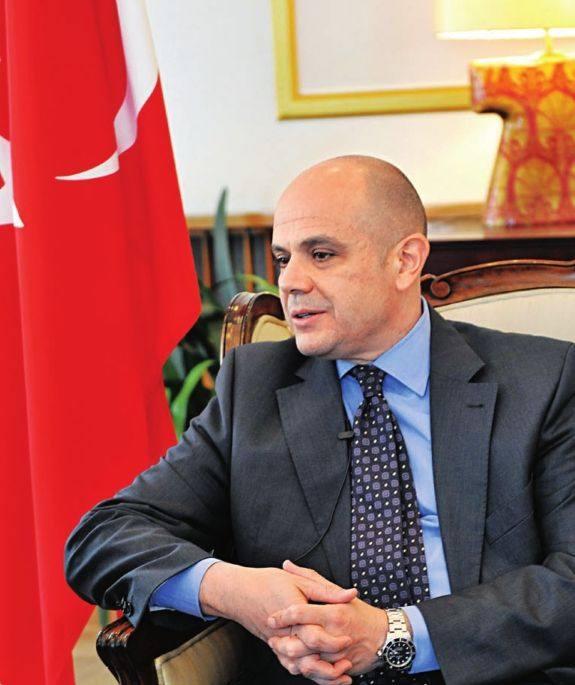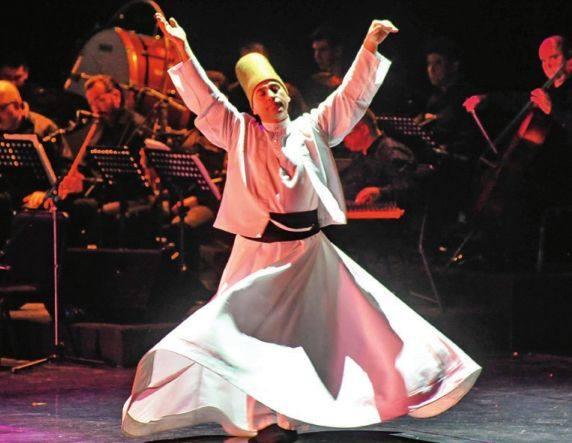Exchanging Culture Along the Silk Road
By staff reporter JIANG WANDI
THE Year of Turkish Culture in China (2013) was formally inaugurated in March after a curtain-raising gala in Beijing. Various cultural activities are on display or will be staged in different cities throughout China, ranging from opera, concerts and ballet to photo and painting exhibitions, according to the Ministry of Culture and Tourism of the Republic of Turkey.
The year-long cultural exchange is expected to enhance friendly relations between China and Turkey and is a part of the Joint Statement of the Peoples Republic of China and the Republic of Turkey on Establishing and Developing Strategic Relations of Cooperation. Last year saw the Chinese Cultural Year successfully held in Turkey. What can Chinese audience expect from the Year of Turkish Culture? China Today sat down with Mr. Murat Salim Esenli, Turkish ambassador to China, to find out.
China Today: Mr. Ambassador, could you expound upon the importance of holding Chinese and Turkish culture years in each others country?
Ambassador Esenli: First of all, I would like to express my congratulations on the success of the Year of Chinese Culture in Turkey (2012). This was indeed a great collaboration between our two countries. On March 21 this year, the opening ceremony of the Year of Turkish Culture was held in Beijings Poly Theater and the Turkish Minister of Culture and Tourism Omer Celik was there to cut the ribbon. All these cultural activities were designed to enhance our traditional friendship by introducing Turkeys past and present to the Chinese audience. Historically, our two nations were very close, but it is necessary for us to refresh the relations today and rediscover each other.
Leaders and government heads of our two countries reached mutual understanding in improving the traditional friendship between Turkey and China and, thus, in 2010 the two governments signed some cooperative agreements, including the one to hold cultural years in each others country. The cultural activities over the past year have achieved remarkable results. For example, people of both countries are paying increasing attention to one another, and the number of exchange students is rising steadily. Of course, mutual understanding cannot be reached merely through holding a cultural year. We are considering regular cultural exchanges in the future.
China Today: The schedule of the Year of Turkish Culture in China (2013) has shown carefully chosen content from Turkeys colorful culture, which is greatly anticipated by the Chinese audience. What considerations were made when these activities were arranged?
Ambassador Esenli: Yes, you may have found this is a well thought-out collection by just watching the performances at the opening gala. According to my knowledge, choice of these activities was based on three considerations: they should represent the Turkish cultural tradition, reflect modern development and also reveal elements that Turkish and Chinese cultures share. I wonder if you have noticed the logo of the Year of Turkish Culture in China, which is actually a Turkish gown with a cloud pattern on it. In Turkeys textile and design industry this pattern is popularly known as the “Chinese cloud.”
What also needs to be mentioned here is that for a long period the Turkish and Chinese people communicated mainly through a third party. At present, thanks to the rapid development of bilateral relations, people in our two countries can exchange information and views directly, enabling us to introduce ourselves more objectively.
For example, according to agreements signed by our two governments in 2010 and 2011, our leading television stations, Turkish TRT and Chinas CCTV, have begun to collaborate. Your magazine, China Today, has published its Turkish edition in Turkey. At the same time, Turkish media Anadolu Press and TRT have also opened branches in China. It is thanks to their first-hand reports that Turkish readers and audiences are now exposed to a fulldimensional picture of China. This progress is very important because these direct, swift and objective reports allow people in our two countries to communicate quickly and conveniently while not being influenced by biased or distorted information from a third party press.
China Today: You have worked for four years as Turkish ambassador to China, during which you have met countless Chinese officials and ordinary people. Do you think we Chinese have good knowledge of Turkey?
Ambassador Esenli: Before the establishment of the Republic of Turkey and the Peoples Republic of China, say, in the 19th century and the first half of the 20th century, Turkey and China did not pay much attention to each other due to problems they encountered domestically and internationally. The two countries have the same experience of fighting to establish a republic. People in the countries were so deeply involved in the drawn-out and arduous struggle for liberation that the traditional Turkish-Chinese friendship which lasted thousands of years was blurred in our cultural memories. Today, however, both Turkey and China are great powers again. We are focal points in the world because of our economic strength and active role in regional and global affairs. As a result, we have rediscovered and given more and more attention to each other.
Turkey and China have established diplomatic relations for 42 years. However, this period has seen ups and downs, including at some times frequent high-level exchanges and at others stonewalling. Whats promising is that the recent four years since 2009 have seen a fundamental development of the bilateral relationship, bringing it to unprecedented heights. In this regard, I want to emphasize the particular contribution of leaders of our two countries, since mutual political trust has laid a foundation for this progress. We share a view that the development of Turkish-Chinese relations should be based on a long-term strategy rather than a short-term one. That is the very reason why in recent years we have been keen to get to know each others cultures.
An interesting story I want to tell you just happened in my family. My nephew is just 12 years old, and attending a Chinese-language course in his school in Turkey. Its natural for a kid of this age to have no interest in another countrys culture. But the opposite is true for him. He is now busy doing analysis and preparing an essay on China titled“What is Happening in China Today.” I believe friendship can continue successfully only when peoples of our two countries make efforts generation after generation to understand each other culturally.
China Today: Even today, mention of Turkey will conjure up the image of the ancient Ottoman Empire for many Chinese. How can you help Chinese people gain better knowledge about modern Turkey, particularly its social and economic achievements?
Ambassador Esenli: It is true that the Ottoman Empire, which ruled for nearly 700 years, left its glory and influence on the world. As the heir and successor of the empire, modern Turkey has a desire to develop good relations with other countries including China, letting them know not only about our past but also our present.
It is hoped that more and more Chinese businesspeople, students and those from various walks of life will visit Turkey. In 2009 when I began my ambassadorship in China there were merely 60,000 Chinese tourists visiting Turkey every year, but by 2012 the number had risen sharply, to 115,000. This years statistics are particularly encouraging. In February, the number of Turkey-bound Chinese visitors increased by 80 percent over January. This growth is clearly attributable to the great efforts made by both governments.
China Today: It is expected that this year and in the years to come, more and more Chinese will visit Turkey as tourists, students and investors. Do you have any advice and recommendations for them?
Ambassador Esenli: First of all, I want to emphasize that enhancing ties between our two countries relies mainly on peoples mutual understanding. It is for this purpose that the Turkish Embassy in China recently simplified our visa process. A funny thing is that in Europe we Turkish are often called “European Chinese.” That means that we are diligent and hospitable like the Chinese. So Chinese visitors may find themselves quite at home in our country and their tour to “rediscover Turkey” worth making.
Turkey has a large territory boasting a broad range of diverse cultural characters and scenic features in its provinces and cities. Most foreign visitors would choose Istanbul as their tourist destination, and that is a great choice since the ancient capital is home to our history and cultural origin. However, seeing just Istanbul is far from enough. Just like one traveling in China is advised not to tour only Beijing and Shanghai, but also visit Guilin, Zhouzhuang, Guangzhou, Datong, Lijiang, Urumqi and other places, when in Turkey I recommend you go farther and see more by visiting Antalya, Trabzon, Diyarbakir, Van, Izmir, Cappadocia, Konya, Ankara and other places apart from Istanbul.
The good news is that air routes linking Turkey and China have been increasing in recent years. Turkish Airlines has 21 flights every week from Turkey to Beijing, Shanghai and Guangzhou. China Southern also has four flights every week to Istanbul. It is really amazing that the ancient Silk Road has not lost its allure. It is by this route that Turkey and China are now getting closer and closer.

